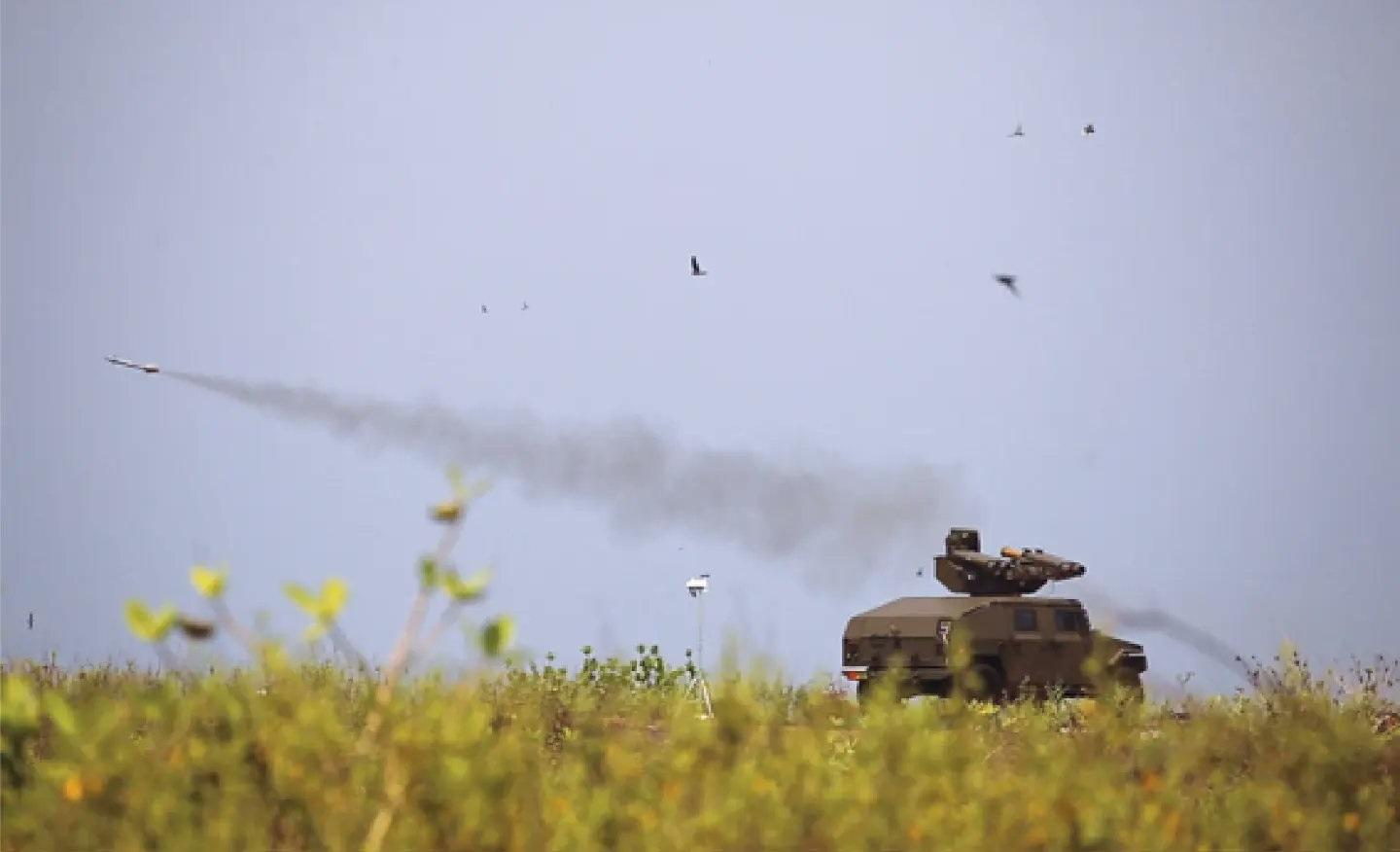The Indonesian Ministry of Defense, Army Headquarter, PT Len Industri (Persero) supported by Thales has just conducted a test-firing of the Starstreak Air Defense Artillery Missile at the Air Weapon Range (AWR) Pandanwangi Lumajang, East Java. The firing test was carried out by firing 4 missiles and a moving target in the form of a banshee drone. The result of shooting is 1 direct hit and 2 of them are technical hits. Firing is carried out within 4 – 7 km from the firing point to the moving target in the air. The RapidRanger launcher and fire control system are equipped with four Starstreak missile tubes integrated into the Spanish-designed URO VAMTAC (Vehículo de Alta Movilidad Tactico, “High Mobility Tactical Vehicle”) ST5 vehicle.
The Indonesian Army has turned to the British arm of Thales to plug a gap in its short-range air defenses with a deal to purchase its Forceshield integrated system of vehicle-mounted missiles and radars. Under the deal, Thales operations in Britain and France will equip five Indonesian Army batteries with Starstreak missiles, ControlMaster200 radars and weapon coordination systems, lightweight multiple launchers and RapidRanger weapon launchers. The air defense deal is worth more than £100 million (US 4 million) and about 20 URO VAMTAC vehicles with ForceShield air defence network delivered. Other elements include the Ground Master 200 radar, fire control system and Land Rovers fitted with the Lightweight Medium Launcher and Starstreak.

Starstreak is a British short-range man-portable air-defense system (MANPADS) manufactured by Thales Air Defence (formerly Shorts Missile Systems), in Belfast. It is also known as Starstreak HVM (High Velocity Missile), Thales rebranded the system under the ForceSHIELD banner. After launch, the missile accelerates to more than Mach 4, making it the fastest short-range surface-to-air missile in existence. It then launches three laser beam-riding submunitions, increasing the likelihood of a successful hit on the target. The operator tracks the target using the aiming unit’s optically stabilized sight. The process of tracking the target allows the aiming unit to compute the right trajectory to bring the missile together with the target.
Four metres (thirteen feet) away from the operator, when the missile is a safe distance away, the second stage fires, which rapidly accelerates the missile to a burn-out velocity of more than Mach 4. The dart housing is made from a tungsten alloy. The darts are each 396 millimetres (15.6 in) long with a diameter of 22 millimetres (0.87 in) and weigh about 900 grams (32 oz). Earlier laser guidance systems used a single beam that had to be kept on the target at all times, the missile homing in on laser energy reflected off the target, if it moved off the target, the reflection would end and guidance would be lost until the target was regained. Each sub-munition dart travelling at 4,500 kilometres per hour (2,800 mph) has comparable kinetic energy to a shell from a Bofors 40 mm gun.
Role model IDKLO pengadaan alutsista ????https://t.co/hHFF1uFqqM#DefendID #LenIndustri#BUMNuntukIndonesia#Starstreak #ArhanudTNIAD#HoldingBUMNIndustriPertahanan#HoldingBUMNIndhan #StrongIndependentCompetitive#IndonesiaDefenceIndustry pic.twitter.com/8oEXJBFqrN
— PT Len Industri (Persero) (@LenIndustri) March 28, 2022















